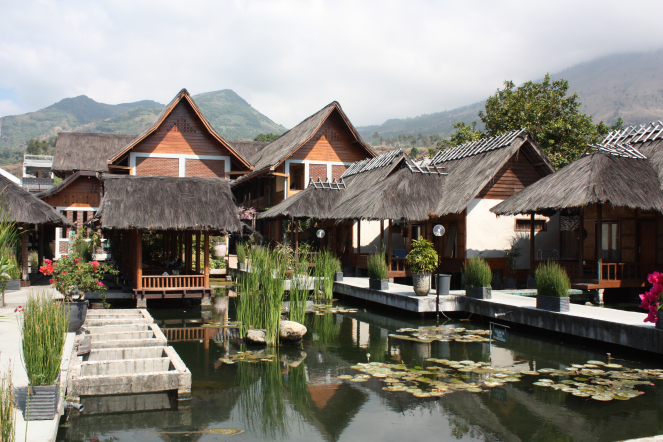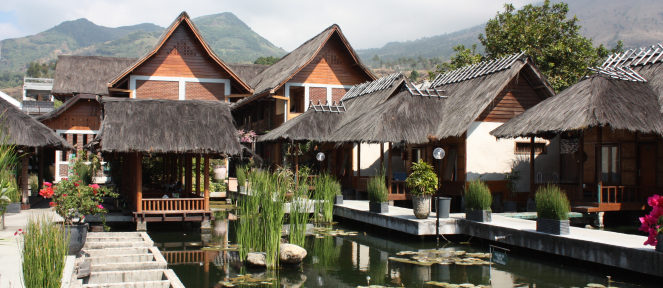
“Do you want coffee? Tea?”
I glance with discomfort at the LFP staff member who has come to help me translate. It is Ramadan, and I have yet to determine the cultural rules of eating during the daytime. “If Abdullah doesn’t mind?”
My interviewee speaks purposefully, emphasizing choice words with a lilting crack in his voice. “They have to be don’t mind. They have to be don’t mind because that’s their own responsibility.” He lights a cigarette, a big middle finger to the fact that smoking is also forbidden during the fast.
My wet sleeves cling to my arms and all my little hairs are standing up. The date I have written into my notebook is smudged and the edges of the manager’s consent form are curled upwards. About halfway down the mountain Abdullah had asked if I had brought a rain jacket, and I replied confidently that I always kept a spare umbrella in my backpack. To the contrary, my umbrella was tucked haphazardly under my bunk back at home. The only part of me that remained dry as we whipped through Garut was my head under a motorcycle helmet.
The rain starts to clear and like wavering window curtains, droplets trickle from the roof of the verandah around us. This is one of the many “eco-resorts” in the area that features hot springs. They have built walkways, bungalows, and open lounges directly over the water, so steam rises on all sides of us and I catch glimpses of carp through the slits in the wood under my feet. For the past month, I have been travelling to different wildlife rescue centers, eco-resorts, and tourist attractions to discover how tourism impacts the Indonesian ecosystem. Resorts like these are everywhere, little oases hiding within the commotion of the city. As one interviewee explained, they represent “Indonesia from a Western gaze”, temple-like in structure, with open air patios and lazy wooden fans hanging from the ceiling and twangy tropical music acting as an insistent backdrop. On the resort’s website, they claim to be an “eco-friendly resort” that “cares deeply about the natural preservation around us”, and we are here to determine what that actually means.
In one moment the hotel manager is apologizing for his broken English, and in the next he is telling me that he used to live in Brooklyn and Bayonne, New Jersey. After detailing his run-ins with the American mafia, he explains that it’s not so different here. He is obligated to hire as employees men from the top of the mountain, where all the water for his resort is sourced. If he fires them, the water stops. I am listing themes as I go, and I resist the urge to scribble water mafia under the “Barriers” column and instead put a tally next to corruption.
We soak through the seat cushions for over an hour, and I let the manager answer all of my questions before I ask them. He speaks as though everything is a new profound thought, a professor eager to have a pupil. He allows me the time to write down every word, but I am clumsy because my nerve-damaged index finger is still numb from the rain. Abdullah sits patiently while his translating abilities go completely unused. I down the last of my warm Javan coffee. My final question is always the same – I ask if there is anything he wishes he could do differently in his job.
He responds without pause. “Yes. If more people to think about the tourism as more consistent… more sustainable… environmentally… the tourists will be more…the people come, want to have inspiration, experience, to take it home. To pass it to other people. They have less here.”
I try to think of an eloquent way to follow up. All I can come up with is, “But why is it so hard?”
He holds up a finger. “Because of the loss of the culture.”
I had struggled to understand what this man really thought of tourism in Indonesia, because over and over he had used the phrases “increase of culture” and “loss of culture” interchangeably. He goes on to explain how you can get an omelet anywhere in Garut but that the traditional uses for rhubarb soup, such as warding off evil spirits, are not as common. Now I understand he is referring to the increase of one culture and loss of another.
In these interviews, I treat wildlife, the environment, and local people as separate entities. I want to know how tourism can positively and negatively impact each of these. However, Indonesian participants have continually conflated the three. They see the eroding of their forests by big industries as an attack upon their culture. But when they are able to take control of the environment themselves, it is an act of preservation for both. The manager tells me that he is going to start a Nature Conservation club in a month after his retirement, where he will teach children to fish and herd water buffalo and keep chickens. To me, these are not typical examples of conservation, but instead of conserving a way of life.
This is why Wildlife Conservation cannot be separated from Anthropology. I am starting to see that, at least among my small sample size, the local people here see their environment as a part of themselves. When we wedge ourselves into their world without any understanding of their culture and start telling them how to treat their environment, it is an affront to their culture. Instead, we need to return control to them, so that they are able to preserve their wildlife and their environment themselves.
Before we leave, I ask to use the bathroom, where I lean against the wall and steal a few bites of a packed sandwich. I could reflect upon how bizarre this is, but instead I am musing over the fact that the toilet has an “ecoflush” option. I reach for my notebook.
- Kelsey
- Volunteer

